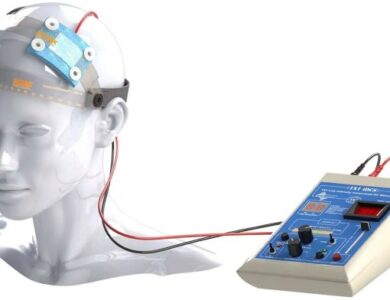Unmasking the Hidden Thief: Unveiling the Consequences of Vitamin B1 Deficiency

In the heart of the Amazon rainforest, a tribe of indigenous people thrived on a diet of cassava, a starchy root rich in carbohydrates but devoid of essential vitamins. As they consumed this cassava day after day, an insidious deficiency crept into their lives, a silent thief of their health and vitality. Their bodies, deprived of the vital nutrient thiamine, or vitamin B1, began to rebel. Muscles weakened, hearts faltered, and minds clouded. The once vibrant tribe succumbed to a debilitating condition known as beriberi, the stark manifestation of vitamin B1 deficiency.
This anecdote from the Amazon serves as a stark reminder of the profound impact of vitamin B1 on our well-being. Thiamine, an unsung hero of the B-vitamin complex, plays a pivotal role in our bodies, orchestrating a symphony of essential processes. From fueling our cells to transmitting nerve signals, vitamin B1 is the maestro of our metabolism, ensuring that our bodies function seamlessly.
The Powerhouse Nutrient: Understanding Vitamin B1
Vitamin B1, also known as thiamine, is an essential nutrient that plays a fundamental role in various bodily functions. It is a water-soluble vitamin, meaning that it dissolves in water and is not stored in the body in significant amounts. Therefore, it is crucial to consume thiamine regularly through our diet.
Thiamine serves as a coenzyme, a molecule that partners with enzymes to catalyze essential biochemical reactions in our bodies. It is involved in:
Energy Production: Thiamine is crucial for converting carbohydrates into energy, the fuel that powers our cells. It helps break down glucose, the sugar derived from carbohydrates, and generate adenosine triphosphate (ATP), the energy currency of our cells.
Nerve Function: Thiamine plays a vital role in transmitting nerve signals, ensuring proper communication between the brain and the body. It helps maintain healthy nerve sheaths, the protective coverings that surround nerves, ensuring efficient signal transmission.
Heart Health: Thiamine supports optimal heart function by regulating the heartbeat and maintaining proper blood circulation. It helps prevent heart rhythm abnormalities and supports the overall health of the cardiovascular system.
Cognitive Function: Thiamine contributes to healthy cognitive function, including memory, learning, and focus. It helps maintain the integrity of the nervous system, supporting the brain’s ability to process information and function efficiently.
Prevalence of Vitamin B1 Deficiency
Vitamin B1 deficiency, also known as beriberi, is more common in developing countries due to factors such as poverty, limited access to nutritious food, and reliance on processed foods that are low in thiamine. However, it can also occur in developed countries due to alcohol abuse, certain medical conditions, and genetic predispositions.
Vitamin B1 deficiency is more prevalent in specific populations, such as:
- Individuals with Alcohol Use Disorder: Alcohol interferes with thiamine absorption, increasing the risk of deficiency among those who consume excessive alcohol.
- People with Malabsorption Disorders: Certain medical conditions, such as celiac disease and Crohn’s disease, can impair the absorption of nutrients, including thiamine, increasing the risk of deficiency.
- Individuals with Certain Genetic Predispositions: Some genetic conditions can affect thiamine metabolism, making these individuals more susceptible to deficiency.
- In general, vitamin B1 deficiency is not as common in developed countries as it was in the past due to improved food fortification and increased awareness of nutritional needs. However, it remains a concern for certain populations and can have serious health consequences if left untreated.
A Hidden Deficiency with Dire Consequences
While vitamin B1 deficiency may seem like an obscure medical condition, its consequences are far from trivial. This seemingly simple nutrient deficiency can unravel the delicate tapestry of human health, leading to a cascade of debilitating symptoms.
Imagine your muscles, once strong and resilient, becoming weak and atrophied. Your heart, the engine of your life, falters in its rhythm, causing breathlessness and fatigue. Your mind, the sharp instrument of your thoughts, becomes clouded, struggling to grasp even the simplest concepts.
These are just a few of the stark realities that can befall those grappling with vitamin B1 deficiency. The condition, known as beriberi, manifests in two distinct forms: wet beriberi, characterized by heart problems and edema, and dry beriberi, affecting the nervous system and causing muscle weakness, numbness, and mental impairment.
The insidious nature of vitamin B1 deficiency lies in its ability to creep into the body unnoticed, slowly eroding its vitality before revealing its devastating effects. This silent thief of health can strike anyone, regardless of age, gender, or socioeconomic status.
But fear not, for the tale of vitamin B1 deficiency does not end in despair. With early detection and treatment, the body can reclaim its lost vitality, shaking off the shackles of this nutritional imbalance. Embark on a journey of nutritional enlightenment and safeguard yourself from the clutches of vitamin B1 deficiency.
In the symphony of human health, vitamin B1 plays an unsung hero’s role, orchestrating a vital melody of essential processes. Yet, when this maestro is silenced by deficiency, the body’s rhythm falters, leading to a discordant chorus of debilitating symptoms.
Imagine your muscles, once robust and agile, becoming weak and atrophied. Your heart, the lifeblood of your existence, stumbles in its rhythm, leaving you breathless and fatigued. Your mind, once sharp and discerning, becomes clouded, struggling to grasp even the simplest concepts.
These are just a few of the stark realities that can befall those grappling with vitamin B1 deficiency, a condition known as beriberi. This insidious thief of health manifests in two distinct forms: wet beriberi, characterized by heart problems and edema, and dry beriberi, affecting the nervous system and causing muscle weakness, numbness, and mental impairment.
Symptoms: A Body Out of Tune
Vitamin B1 deficiency, like a discordant note, disrupts the body’s harmony, leading to a range of symptoms:
- Fatigue and Weakness: Your body’s energy production falters, leaving you feeling drained and lacking vitality.
- Loss of Appetite and Weight Loss: The desire to eat diminishes, leading to unintentional weight loss.
- Irritability and Mood Swings: Your emotional balance is thrown off, making you irritable and prone to mood swings.
- Muscle Weakness and Cramps: Your muscles, deprived of proper nourishment, become weak and prone to cramps.
- Impaired Cognitive Function and Memory Loss: Your mental acuity suffers, affecting memory, learning, and concentration.
- Tingling and Numbness in the Extremities: A sensation of pins and needles or numbness creeps into your hands and feet.
- Heart Problems and Edema: Your heart’s rhythm falters, and fluid retention causes swelling in your extremities.
Causes: The Culprits Behind the Deficiency
The underlying causes of vitamin B1 deficiency, like a discordant melody, are multifaceted:
Inadequate Dietary Intake: A diet devoid of thiamine-rich foods, such as whole grains, legumes, nuts, and seeds, sets the stage for deficiency.
Alcoholism: Alcohol disrupts thiamine absorption, increasing the risk of deficiency among heavy drinkers.
Malabsorption Disorders: Conditions like celiac disease and Crohn’s disease hinder nutrient absorption, including thiamine.
Kidney Disease: Impaired kidney function can affect thiamine metabolism, leading to deficiency.
Genetic Predisposition: Some individuals have genetic variations that affect thiamine metabolism, making them more susceptible to deficiency.
Diagnosis: Restoring Harmony with Timely Intervention
Diagnosing vitamin B1 deficiency, like finding the right tuning fork, requires a comprehensive approach:
- Physical Examination: A doctor assesses your symptoms and looks for physical signs of deficiency.
- Blood Tests: Thiamine levels are measured through blood tests to confirm the deficiency.
- Neurological Tests: Nerve function is evaluated to assess the extent of neurological involvement.
Treatment: Reclaiming the Body’s Rhythm
- Treatment of vitamin B1 deficiency, like a well-composed melody, aims to restore harmony:
- Thiamine Supplementation: Oral or intravenous thiamine supplements are administered to replenish thiamine stores.
- Dietary Modifications: Dietary changes are made to increase intake of thiamine-rich foods.
- Underlying Condition Management: Underlying medical conditions that contribute to deficiency are addressed.
Prevention: A Symphony of Healthy Habits
Preventing vitamin B1 deficiency, like a harmonious chorus, involves lifestyle changes:
- Balanced Diet: Consume a balanced diet rich in thiamine-rich foods.
- Quit Alcohol Consumption: Quit or limiting alcohol reduces risk of deficiency.
- Medical Condition Management: Manage underlying medical conditions that increase the risk of deficiency.
While vitamin B1 deficiency may seem like a distant threat, it’s essential to remember that prevention is always better than cure. Here are some practical strategies to safeguard your body against this silent thief of health:
-
Regular Check-ups and Early Detection: Regular medical check-ups can help identify any potential signs of vitamin B1 deficiency early on, allowing for prompt intervention and treatment.
-
Nutritional Supplements: In certain cases, healthcare providers may recommend thiamine supplements to boost thiamine intake, particularly for individuals with a higher risk of deficiency.
Vitamin B1, a crucial component of the symphony of human health, deserves your attention. Early detection and treatment of vitamin B1 deficiency can restore harmony to your body, preventing the discordant notes of debilitating symptoms. Embrace a healthy lifestyle, adopt a balanced diet, and seek medical advice if you suspect vitamin B1 deficiency. Remember, a well-tuned body is a harmonious melody of vitality and well-being.




